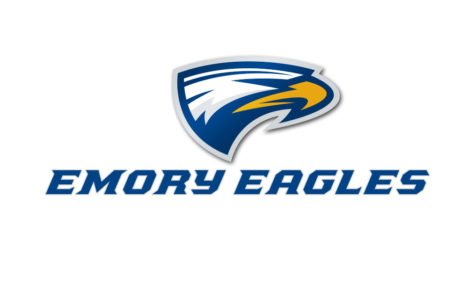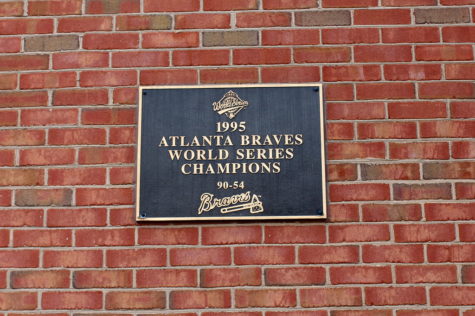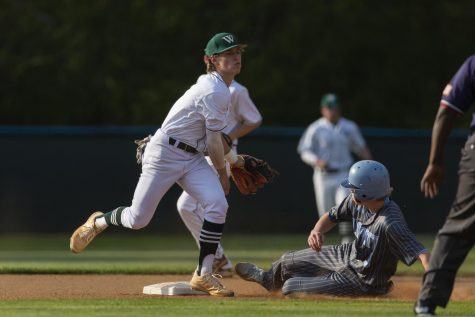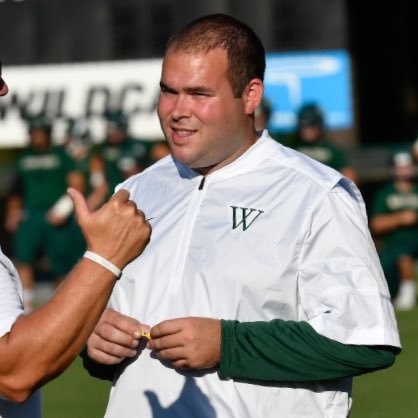The future of the Hawks
The Atlanta Hawks have been a part of the NBA postseason for nine seasons now, second to only the San Antonio Spurs. Yet a sense of mediocrity permeates through the team and its fan base. The question is, should the Hawks tank or compete?
At the moment, the Hawks are fourth in the Eastern Conference with a record of 26-19. According to the national media, they are seemingly destined to meet Cleveland in the second round of the playoffs and be swept yet again. However, there are signs of hope within the organization. The inspiring play of Dennis Schroder and Tim Hardaway has led the Hawks to many marquee wins, including at Cleveland, at Oklahoma City, at Toronto, and against the Spurs and the Rockets. These wins are those of a team that has also lost to the lowly Lakers, Pistons, Magic, and Pelicans, however, and this is where the Hawks must improve if they are to ascend up the standings. They must be able to beat inferior competition instead of playing down to their level.
The issue of tanking is one that is very nuanced. For instance, if the Hawks wanted to tank, they probably would have done it a couple of months ago as it is far too late to start to tank for this year’s loaded draft. Mentioning the Hawks and tanking means that Paul Millsap is in the conversation as well. The Hawks star forward is having another spectacular season as he is averaging 18 points, eight rebounds, and four assists per game. He is also a free agent next year and it would cost the Hawks a fortune to re-sign the aging 32-year-old star. The Hawks also don’t want to lose him for nothing like they lost Al Horford last summer. This creates an interesting question. Do the Hawks keep Millsap in order to compete or trade him to tank?
There are issues with both sides of this question. If the Hawks keep Millsap to compete, that does not mean that they are attempting to make a title run. The Hawks are still the face of playoff mediocrity even with Paul Millsap. However, if they traded him for assets, it is still too late to tank because in order to get a good draft pick in this years’ draft, the Hawks would need to win only around 25 games. Seeing that they have already won 26 games, this option seems like a poor choice. This leads the Hawks to their third option. The dreaded Bermuda Triangle of the NBA. Mediocrity. The Hawks seem to have little in terms of future stars, but their veterans are good enough to keep them competitive for the next few years. The Hawks must avoid this option at all costs; they wouldn’t want to end up like the Sacramento Kings, for example, a team that seemingly has no future, but no present either.
The solution for the Hawks seems rather clear. This is normally a team that does not attract marquee free agents with the notable exception of Dwight Howard. This means that there are two methods for improvement for the Atlanta Hawks. The first is trade. The Hawks have impending free agent Paul Millsap, a piece that any team contending for a playoff spot or a championship would love to have. His price seems to be a high first-round pick coupled with two rotational or competent players. The Hawks also have rising star Tim Hardaway, who also happens to be a free agent, but he is restricted so the Hawks will be able to match any offer that is proposed to him. He was reported to be up for a second-round pick, but that price is now ascending as he has put on a show of averaging 17 points a game lately.
Finally, the Hawks have free agent Thabo Sefolosha, a versatile defensive specialist who also can shoot three-pointers. He could be a late first-round pick as well. If the Hawks were to trade all three of these players they could be looking at a draft with one lottery pick, two late first rounders, and possibly a third first-round pick. Combine that with Dennis Schroder, Dwight Howard, and Kent Bazemore, and the Hawks just might have a team for the future.







